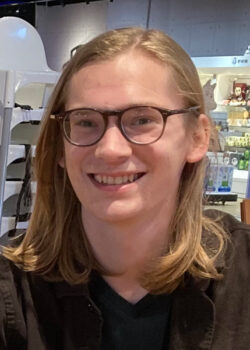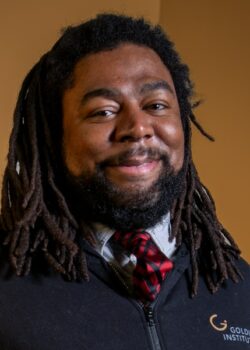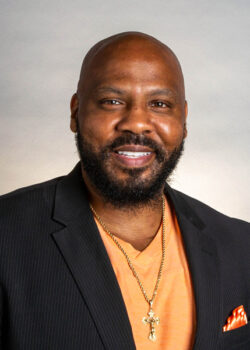
Mutual Aid Collaborative
The Chicago Peace Fellows launched the Mutual Aid Collaborative as a model of shared leadership, collaborative decision-making and collective action to support communities on the South and West Sides through the twin epidemics of COVID-19 and violence. The Mutual Aid Collaborative has remained active in its support of the communities in Chicago most impacted by these epidemics for the last year and a half, providing sought after resources, building community, and creating spaces for healing.
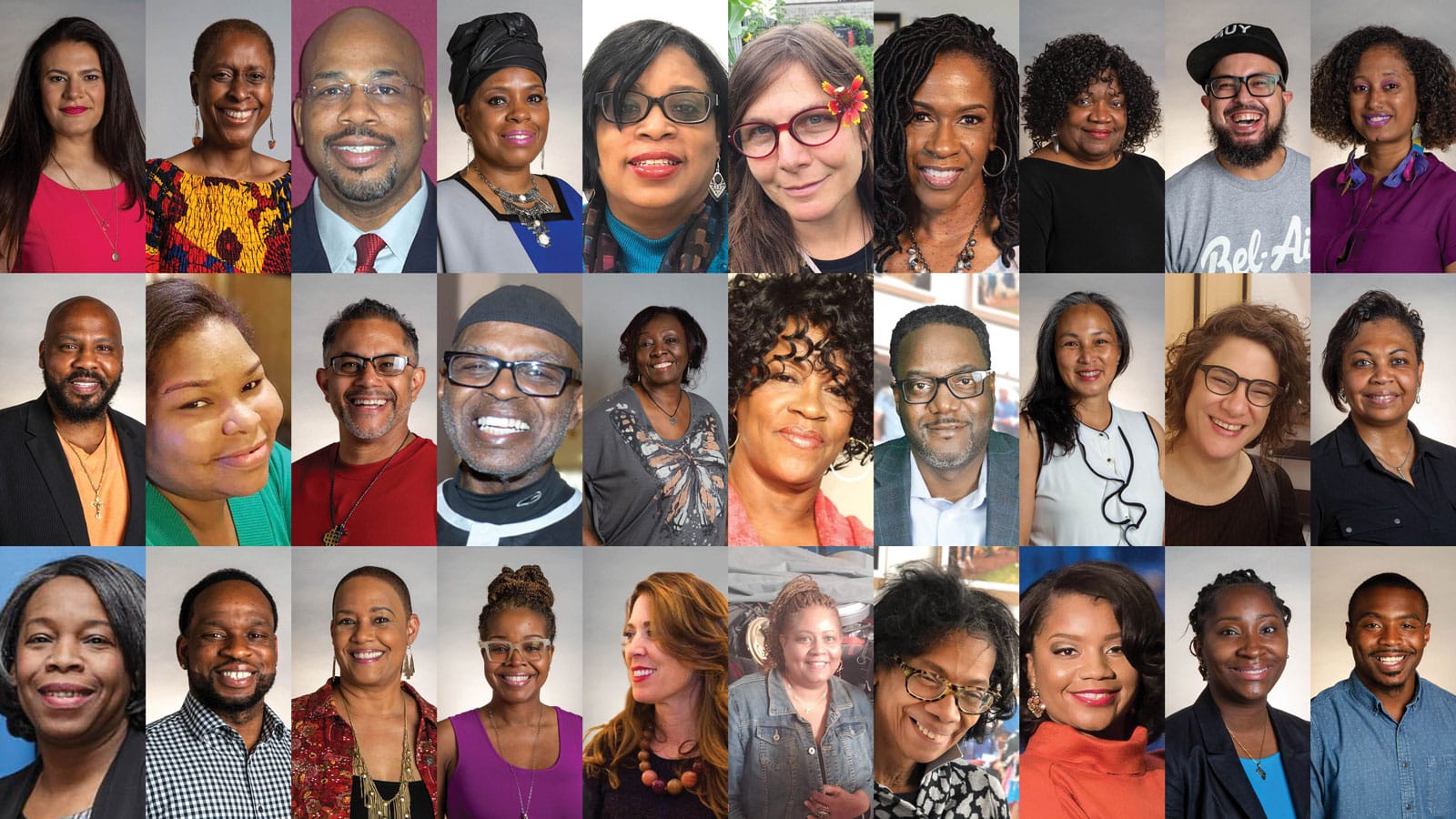
Support our Work
become a champion for community driven social change
Support the Goldin Institute
Make a Tax-Deductible Contribution Today
Make a Tax-Deductible Contribution Today
The Mutual Aid Collaborative is made up of 74 Black and Brown leaders and committed allies who live and work in the communities they serve on the South and West sides who are Alumni of the Chicago Peace Fellows program. They practice a liberatory model of shared leadership, accountability, collaborative decision-making and collective action. By empowering community based leaders, the Mutual Aid Collaborative brings resources to individuals that have demonstrated knowledge and connections to the communities they both live in and serve.
The community leaders that take part in the Mutual Aid Collaborative build on partnerships that they developed as Peace Fellows. Prior to working on projects in the Mutual Aid Collaborative, Peace Fellows spent months building trust, developing relationships, and collaboratively working through a curriculum centered around community driven social change through the GATHER Platform. Their experience working together has been manifest through the impacts of Mutual Aid Collaborative projects.
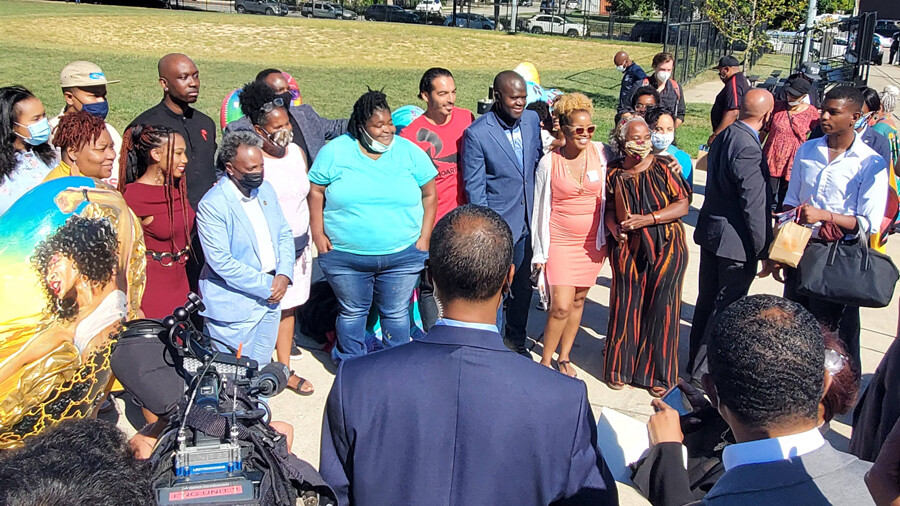
Many of the Mutual Aid Collaborative projects have been completed, with Fellows continuing their work on related issues. For example, in the Parade of Hearts, large fiberglass hearts were placed in ten neighborhoods across Chicago. This project was designed by Peace Fellow Cosette Nazon-Wilburn and her organization, The LUV Institute with support from the Mutual Aid Collaborative. The fiberglass hearts were created to invoke a sense of pride in underserved communities and were created by local artists. With the establishment of public art in underrepresented spaces, we can see the impact of symbols of peace and love on public discourse.
Other Mutual Aid Collaborative projects have achieved similar results including:
• LOV DAY, which was hosted by the Ladies of Virtue and sponsored by the Mutual Aid Collaborative. Funding was used towards an event in which Black girls were brought together to play games, receive manicures, masks, and have a self-care day. On LOV DAY, the Ladies of Virtue also distributed 350 boxes which included Black History Facts, teddy bears, hair care products, and PPE to Black girls across the South Side of Chicago.
• Raising Black Girl Magic, a project that was dedicated to serving the needs of young black women in Chicago. This project was led by Chicago Peace Fellows Jamila Trimuel and La’Keisha Gray-Sewell who work with young women and provided bi-monthly sessions targeting an often-overlooked population. They also provided material assistance from food to sanitary products.
• Healing Centered Activities for our Seniors, a group dedicated to serving the needs of the senior population. Fellows will packaged and distributed bags filled with essential items such as oral hygiene items, sanitation products, and food. They also provided entertainment for the elderly such as playing cards, dominoes, and puzzles, as well as health centered services such as wellness checks, virtual gatherings, and chair yoga classes.
• Chicago Stories on the Block was a collaborative effort by Peace Fellows to engage young community members most impacted by violence to engage in self-reflection creatively through art. This project taught the skills required to turn artistic endeavors into entrepreneurship opportunities. The project culminated in the painting of four murals inspired by the participants’ stories, the publication of a chapbook showcasing poetry, and the creation of music inspired by the murals.
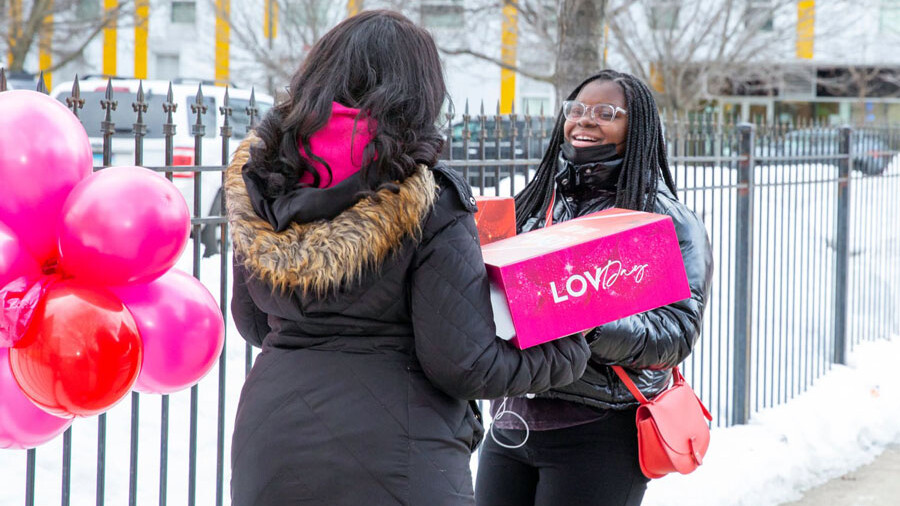
The Mutual Aid Collaborative is made up of 74 Black and Brown leaders and committed allies who live and work in the communities they serve on the South and West sides who are Alumni of the Chicago Peace Fellows program. They practice a liberatory model of shared leadership, accountability, collaborative decision-making and collective action. By empowering community based leaders, the Mutual Aid Collaborative brings resources to individuals that have demonstrated knowledge and connections to the communities they both live in and serve.
The Mutual Aid Collaborative also consists of several active projects that are currently providing resources to communities in need. One of these projects is the Funders Pledge, in which Peace Fellows are working with foundations to create a “Funders Pledge” calling for “right relations” between philanthropic and community based organizations. This project is providing a new framework for how funding could be informed by racial justice and equity and has received broad attention from the media, including important articles in the Chicago Sun Times and Crain’s Chicago Business.
Other active Mutual Aid Collaborative Projects include:
• Chicago Peace Fellows Music Festival in which the talents of the Chicago Peace Fellows and their neighbors are showcased as they broadcast messages of peace to the city. An in-person event will happen in early June, 2022 with performances from Peace Fellows and affiliated organizations.
• The Records Expungement and Sealing Services project, which serves the community of returning citizens who seek to rebuild their lives after being involved in the criminal justice system. The process of expunging a criminal record is a difficult and arduous task, and the team provides returning citizens with access to legal services, employment services, and a kindred community.
• The Safety Net builds a distributed network of grassroots PPE makers, training community members on how to make and properly use PPE and stay well physically and mentally during these challenging times. By focusing on production, the team builds independence and resilience in communities and help create opportunities for employment. The Safety Net Project will be hosting a Peace Fellows blood drive in late April.
• The Gathering Spot is a team working to secure a “home base” for the Collaborative. They are creating access to a network of spaces in which grassroots leaders can access to do programming, host events, and other activities. Access to physical spaces is a real problem for many leaders, which results in many having to carry out programming from their homes.
• The Greening Collective team grew out of the success of the Peace Flowers initiative and serves to activate vacant lots by building flower and plant farms on the South and West sides of Chicago. This group also works with young people and those facing barriers to employment to earn skills in landscaping, permaculture, and green infrastructure.
• Peace Fellows Podcast will be a series of broadcast conversations highlighting the work and perspectives of Peace Fellows and aligned organizations. The series will help feature grassroots and community-driven initiatives that promote a more just, peaceful and vibrant city.
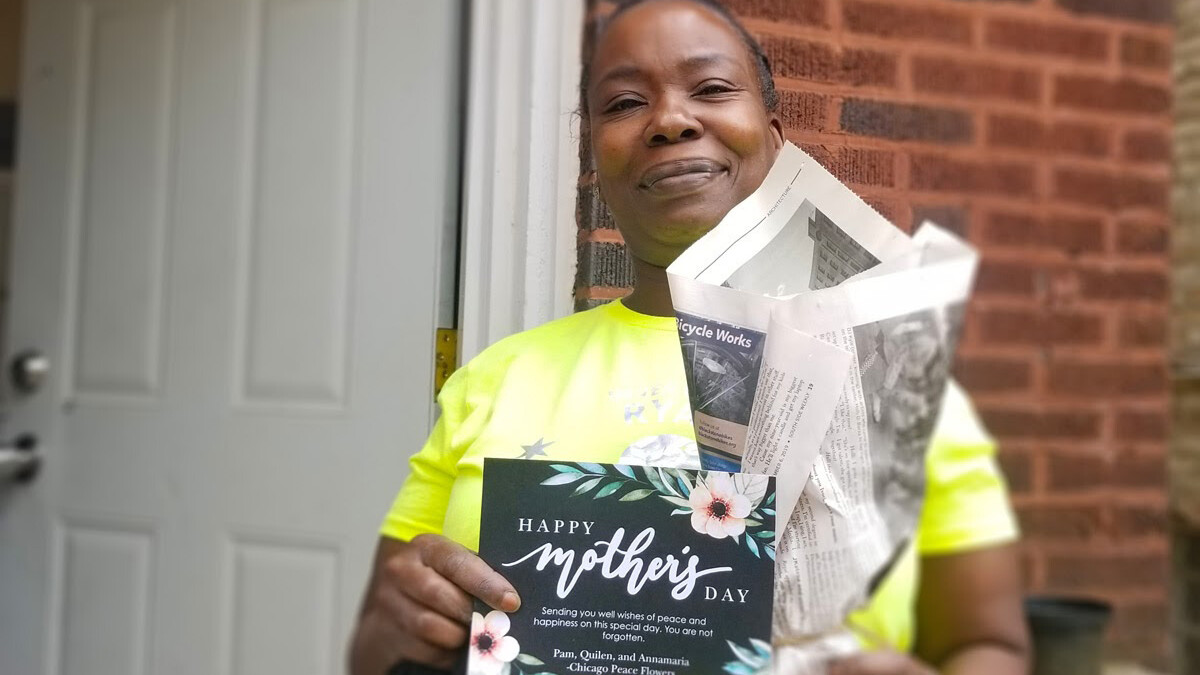
Support our Work
become a champion for community driven social change
Support the Goldin Institute
Make a Tax-Deductible Contribution Today
Make a Tax-Deductible Contribution Today
The Mutual Aid Collaborative is made up of 74 Black and Brown leaders and committed allies who live and work in the communities they serve on the South and West sides who are Alumni of the Chicago Peace Fellows program. They practice a liberatory model of shared leadership, accountability, collaborative decision-making and collective action. By empowering community based leaders, the Mutual Aid Collaborative brings resources to individuals that have demonstrated knowledge and connections to the communities they both live in and serve.
Peace Fellows working with the Mutual Aid Collaborative have expanded their capacity to support their communities through connecting them with funding. To date over $86,000 has been raised for the Mutual Aid Collaborative with significant support coming from the Goldin Institute, the Racial Justice Pooled Fund, Homestead Affordable Development Corporation and the Chicago Lives Healthy + West Side United Fund. This funding is also available for proposed projects that can be pitched to the Mutual Aid Collaborative and collectively voted on.
Currently, different groups of Peace Fellows are working on a proposal for more communal relationship building events as well as a proposal for a project that seeks to acquire vacant lots and build tiny homes. As the Mutual Aid Collaborative continues to grow through such projects, Peace Fellows provide their communities greater access to needed resources.
